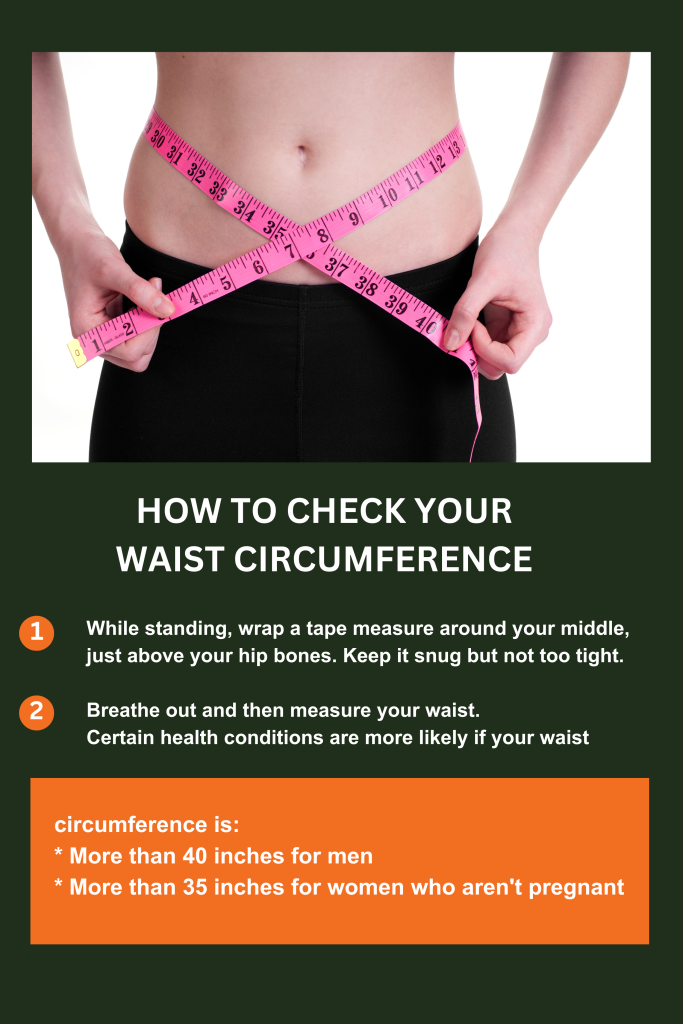Surprise: Everyone has some belly fat, even those with flat abs. It’s completely normal. Fat is an essential part of the human body, but excess belly fat can impact your health differently than other types of fat.

Some fat lies right under your skin, known as subcutaneous fat. Another type, called visceral fat, is deeper within your abdomen, surrounding your heart, lungs, liver, and other organs. Visceral fat can pose more significant health risks, even for people who appear thin.
The Deep Belly Fat
Visceral fat provides cushioning around your organs, which is necessary. However, too much of it can lead to serious health issues like high blood pressure, type 2 diabetes, heart disease, dementia, and certain cancers, including breast and colon cancer.
Visceral fat doesn’t just sit idly; it actively releases substances that can harm your body. Dr. Kristen Hairston, an assistant professor of endocrinology and metabolism at Wake Forest School of Medicine, notes that these substances can be quite detrimental.
When people gain too much weight, the body stores fat in unusual places, including around the organs. Dr. Carol Shively, a professor of pathology-comparative medicine at Wake Forest School of Medicine, explains that as obesity increases, fat can end up around the heart and other vital organs.
How Much Belly Fat Do You Have?
The most precise way to measure visceral fat is through a CT scan or MRI. However, a simple, low-cost method involves using a measuring tape. Wrap it around your waist at the level of your belly button while standing, ensuring the tape is level.
For optimal health, aim for a waist size of less than 35 inches for women and less than 40 inches for men. Having a “pear shape” (larger hips and thighs) is generally safer than an “apple shape” (wider waistline). According to Dr. Hairston, more abdominal fat likely indicates more visceral fat.

Thin People Have It, Too
Even thin individuals can have excess visceral fat. The amount of visceral fat you have is partly genetic and partly lifestyle-related, particularly your activity level. Visceral fat thrives on inactivity. A study found that thin people who were sedentary had more visceral fat.
Being active is crucial, regardless of your size.
4 Steps to Reduce Belly Fat
There are four key ways to manage belly fat: exercise, diet, sleep, and stress management.
1. Exercise: Vigorous exercise reduces all fat, including visceral fat. Aim for at least 30 minutes of moderate exercise, like brisk walking, five days a week. For more intense workouts, 20 minutes a day, four days a week can yield similar results. Options include jogging, brisk walking on an incline, or using stationary bikes, ellipticals, or rowing machines. Activities like raking leaves, gardening, or playing soccer with your kids count too.
Before starting a new fitness program, it’s wise to consult your healthcare provider, especially if you’re not currently active.
2. Diet: There’s no magic diet specifically for belly fat, but losing weight through any diet usually reduces belly fat first. Consuming enough fiber can help. Research by Dr. Hairston shows that people who eat 10 grams of soluble fiber daily—without other dietary changes—accumulate less visceral fat over time. This is equivalent to eating two small apples, a cup of green peas, or half a cup of pinto beans.
3. Sleep: Getting the right amount of sleep is essential. A study found that people who slept 6 to 7 hours per night gained less visceral fat over five years than those who slept fewer than 5 hours or more than 8 hours per night. While sleep isn’t the only factor, it’s part of the overall picture.
4. Stress: Everyone experiences stress, but how you handle it matters. Effective stress management techniques include spending time with friends and family, meditating, exercising to release tension, and seeking counseling. These strategies can help you make healthier choices.
Dr. Shively suggests that if you can only do one thing, exercise might offer the most immediate benefits because it addresses both obesity and stress.
Special Offer: Belly Fat Supplement
Are you looking for an extra boost to help manage your belly fat? Check out this highly-rated belly fat supplement that has helped many people achieve their weight loss goals. Click here to learn to learn more







